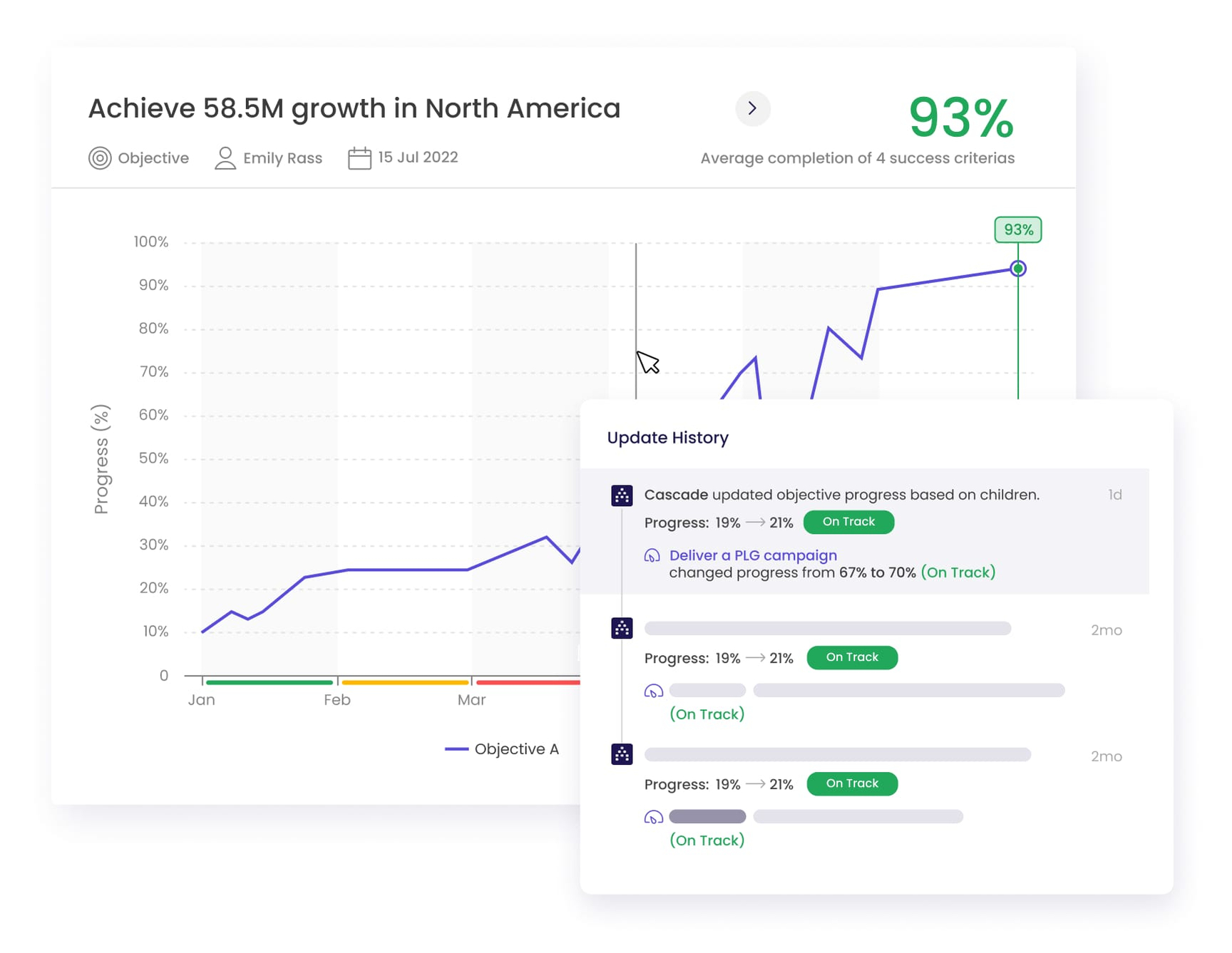The Ultimate guide for working with a Fractional CMO in 2024
What is a Fractional CMO/Agency?
A fractional CMO, or Chief Marketing Officer, is a marketing professional who offers their expertise and services to multiple companies on a part-time or contract basis. The same ethos as discussed in this guide can also be applied to an entire (fractional) agency, whenever a CMO is included in the service offering.
This type of arrangement enables businesses, particularly small and medium-sized enterprises (SMEs), to access high-level marketing expertise without the financial commitment of hiring a full-time CMO or building out a full marketing team.
Fractional CMOs (and agencies) work with a variety of clients, bringing diverse industry experience and insights to each project. They help businesses develop and execute strategic marketing plans, often focusing on areas such as branding, digital marketing, customer engagement, and data analysis. By utilising the skills of a fractional CMO, companies can benefit from a flexible and cost-effective approach to marketing, while still tapping into the knowledge and experience of a seasoned professional.
They offer high-level marketing expertise and strategy development without the cost of a full-time executive. Some key responsibilities and tasks performed by a fractional CMO include:
-
Strategy development: Creating a comprehensive marketing strategy tailored to the company's objectives, encompassing branding, customer acquisition, engagement, and retention.
-
Marketing team leadership: Overseeing and guiding the marketing team, ensuring efficient execution of marketing plans, providing direction, and facilitating communication between departments.
-
Brand management: Crafting and maintaining the company's brand identity, ensuring consistency across all marketing channels, and differentiating the brand in a competitive market.
-
Digital marketing: Supervising the company's digital marketing efforts, including search engine optimisation (SEO), pay-per-click (PPC) advertising, social media marketing, and email marketing to drive traffic, generate leads, and convert prospects into customers.
-
Content marketing: Developing and executing a content marketing plan that generates valuable, relevant, and engaging content to attract and retain customers and establish the company as an industry thought leader.
-
Marketing analytics: Collecting, analysing, and interpreting marketing data to make informed decisions, optimise marketing campaigns, and measure return on investment (ROI).
-
Customer engagement and retention: Designing and implementing strategies to improve customer engagement, drive customer loyalty, and reduce churn rates, ensuring the company's long-term success.
-
Product marketing: Developing and executing product marketing strategies to resonate with the target audience and differentiate the offering from competitors.
-
Networking and partnership building: Identifying and establishing strategic partnerships and collaborating with influencers to extend the reach of the company's products or services.
In the following sections, we will explore each of the above in greater detail, helping you identify what a fractional CMO can and should be doing for your business.

What Is A Fractional CMO? (and why would I need one?)
Strategy development
A fractional CMO develops a marketing strategy by first acquiring a deep understanding of the company's objectives, target audience, and competitive landscape. They immerse themselves in the business, absorbing its unique challenges and opportunities, and utilise that knowledge to craft a bespoke approach to marketing.
In formulating a marketing strategy, the CMO considers various aspects such as branding, positioning, messaging, and the selection of suitable marketing channels. They ensure the brand's identity is consistent across all channels and resonates with the target audience. A robust brand strategy differentiates the company from competitors and builds customer trust.
The CMO also evaluates different marketing tactics, such as content marketing, digital marketing, and social media, to determine which are most effective in reaching the target audience and achieving the company's goals. They take into account industry trends, target audience preferences, and budget considerations whilst making these decisions.
Developing a content strategy is another essential component of the marketing plan. The CMO focuses on addressing the needs and interests of the target audience, positioning the company as an industry thought leader. They explore various types of content, such as blog posts, whitepapers, webinars, and case studies, to educate, inform, and entertain potential customers.
To measure the success of the marketing strategy, the CMO establishes key performance indicators (KPIs) and metrics that align with the company's objectives. This approach enables the business to track progress, make data-driven decisions, and optimise campaigns for better results.
The CMO also pays attention to scalability and adaptability as the business grows, ensuring that the marketing strategy can evolve and continue driving growth and success in the long term.
In summary, a fractional CMO creates a marketing strategy by synthesising their understanding of the business, target audience, and market landscape with their expertise in various marketing tactics and channels, resulting in a tailored approach that drives growth and achieves the company's objectives.

Unlocking Success in Tech and SaaS: How a Fractional CMO Can Drive Your Strategy Development
Marketing team leadership
A fractional CMO offers marketing team leadership by taking on the responsibility of guiding and inspiring the team to achieve the company's marketing objectives. The CMO brings their expertise, experience, and vision to the table, fostering a collaborative environment that encourages innovation, creativity, and continuous improvement.
As a leader, the CMO ensures clear communication between the marketing team and other departments within the company, fostering collaboration and alignment of goals. They establish a strong foundation for the marketing team by defining roles and responsibilities, setting expectations, and providing the necessary resources and tools for the team to excel.
The CMO focuses on nurturing the professional growth of the marketing team members, providing them with opportunities for skill development, mentoring, and training. This approach not only helps to retain and motivate team members but also contributes to the overall success of the marketing initiatives.
By closely monitoring the team's performance, the CMO identifies areas that require improvement or adjustment and takes corrective action to address any challenges. They ensure that the team stays on track with the marketing strategy and adapts to changing market conditions or business priorities.
In essence, a fractional CMO offers marketing team leadership by serving as a mentor, coach, and strategist. They create a supportive and collaborative environment that enables the team to reach its full potential, ensuring the successful execution of the marketing strategy and the achievement of the company's objectives.
A good fractional CMO can take several steps to achieve effective marketing team leadership and drive success:
-
Build rapport and trust: Establish a strong relationship with the marketing team by being approachable, open to feedback, and genuinely interested in their ideas and concerns. Building trust and rapport with team members encourages open communication and collaboration.
-
Set clear goals and expectations: Define the marketing team's objectives, roles, and responsibilities clearly. Align these with the overall company goals and ensure each team member understands their part in achieving the desired outcomes. OKRs are great for this.
-
Provide guidance and support: Offer ongoing direction and support to the team, helping them navigate challenges and make informed decisions. Be available for consultation and advice, ensuring the team feels empowered to seek help when needed.
-
Foster a collaborative environment: Encourage teamwork and collaboration within the marketing team and across other departments. Facilitate open discussions, knowledge sharing, and brainstorming sessions to generate new ideas and innovative solutions.
-
Offer professional development opportunities: Invest in the growth and development of team members by providing training, mentoring, and opportunities for skill enhancement. This not only motivates and retains talent but also contributes to the overall success of marketing initiatives.
-
Monitor performance and progress: Regularly review the marketing team's performance against established KPIs and objectives. Provide constructive feedback and address any performance gaps through coaching, training, or adjusting strategies as needed. Again OKRs are a superb tool for this.
-
Adapt to change and stay agile: Be prepared to adjust the marketing strategy and tactics in response to changing market conditions or business priorities. Lead the team through these changes by being flexible, proactive, and maintaining open lines of communication.
-
Recognise and celebrate achievements: Acknowledge the hard work and accomplishments of the marketing team by celebrating successes, both big and small. This not only boosts team morale but also reinforces a culture of high performance and continuous improvement.
By taking these steps, a good fractional CMO can effectively lead the marketing team, driving success and ensuring the achievement of the company's objectives.

Achieving Marketing Success in Tech and SaaS: How a Fractional CMO Can Elevate Your Team Leadership

What Are OKRs?: A Step By Step Guide To Objectives And Key Results
Brand management
CRM integration is a valuable tool for tech and SaaS companies, enabling them to connect their CRM systems with marketing, sales, and support platforms.
This centralises customer data, streamlines processes, and enhances team collaboration, resulting in improved efficiency and data-driven decision-making. By leveraging integrated CRM systems, businesses can create personalised customer experiences, boost engagement, and increase conversions, ultimately driving growth and success in the competitive tech and SaaS landscape.
CRM integration plays a crucial role in the growth and success of tech and SaaS companies by unifying customer data, streamlining operations, and fostering collaboration. By connecting CRM systems with marketing, sales, and support tools, businesses can enjoy a range of benefits that enhance their overall performance:
-
Centralised customer data: CRM integration consolidates customer data from multiple sources, providing a single, comprehensive view of each customer. This allows teams to easily access and share relevant information, ensuring consistency and accuracy across departments.
-
Improved collaboration: By integrating CRM systems with other business tools, communication between marketing, sales, and support teams is enhanced. This seamless collaboration ensures a consistent customer experience throughout the sales funnel, increasing the chances of conversion and fostering long-term loyalty.
-
Enhanced efficiency: CRM integration automates data synchronization and minimises manual data entry, saving time and reducing the risk of errors. This allows teams to focus on high-value tasks, such as nurturing leads and closing deals.
-
Data-driven decision-making: Integrated CRM systems offer valuable insights and analytics, enabling businesses to make informed decisions based on real-time data. This data-driven approach helps companies optimise their marketing and sales strategies, allocate resources effectively, and ultimately, achieve better results.
-
Personalisation: With a unified data ecosystem, tech and SaaS companies can leverage customer information to create personalised experiences. By tailoring content, offers, and communication to individual customer needs and preferences, businesses can enhance engagement, drive conversions, and build strong relationships with their clients.
In conclusion, CRM integration is a powerful strategy for tech and SaaS companies looking to improve their customer relationship management, streamline operations, and drive business growth.
By connecting CRM systems with marketing, sales, and support platforms, businesses can create a cohesive data ecosystem that enhances collaboration, boosts efficiency, and enables personalised customer experiences. Continuously refining and adapting their approach to CRM integration will ensure ongoing success in the competitive tech and SaaS market.

Strengthening Your Tech or SaaS Brand: How a Fractional CMO Can Enhance Brand Management
Digital marketing
A fractional CMO owns the digital marketing of a tech or SaaS organisation by taking full responsibility for creating and executing the digital marketing strategy that aligns with the company's business objectives. They leverage their expertise in various digital marketing channels and techniques to drive the business forward, ensuring growth and long-term success.
Here's how a fractional CMO drives the digital marketing of a tech or SaaS organisation and propels the business forward:
-
Developing a comprehensive digital marketing strategy: A fractional CMO creates a well-defined digital marketing strategy that encompasses various channels such as content marketing, search engine optimisation (SEO), email marketing, social media, and paid advertising. They ensure the strategy aligns with the company's overall goals, target audience, and budget constraints.
-
Aligning digital marketing with business objectives: The CMO ensures that digital marketing initiatives support and contribute to the company's business objectives, whether it's acquiring new customers, increasing customer retention, or expanding into new markets. By aligning digital marketing efforts with business goals, the CMO can demonstrate the value and impact of their work on the company's bottom line.
-
Leveraging data-driven decision-making: A fractional CMO uses data and analytics to make informed decisions about digital marketing initiatives, helping the company maximise ROI and make the most of its marketing budget. They regularly monitor and analyse key performance indicators (KPIs) to identify areas of improvement and optimise campaigns for better results.
-
Fostering collaboration and communication: A successful digital marketing strategy requires collaboration and communication across various departments within the organisation. The CMO facilitates this by ensuring that the marketing team works closely with product development, sales, and customer support teams to create a cohesive and consistent brand experience across all digital touchpoints.
-
Driving innovation and staying agile: The rapidly evolving digital landscape requires tech and SaaS companies to stay agile and innovative. The CMO drives this by staying up-to-date with industry trends and emerging technologies, as well as experimenting with new digital marketing tactics and platforms to drive better results and maintain a competitive edge.
-
Scaling digital marketing efforts: As the business grows, the fractional CMO can help scale digital marketing initiatives to reach a larger audience, expand into new markets, or support product launches. They do this by refining the digital marketing strategy, prioritising high-impact initiatives, and allocating resources effectively.
-
Building and leading a high-performing digital marketing team: A fractional CMO is responsible for building and leading a team of skilled digital marketing professionals who can execute the digital marketing strategy effectively. They mentor and support team members, ensuring they have the necessary skills, tools, and resources to excel in their roles.
In summary, a fractional CMO owns the digital marketing of a tech or SaaS organisation by developing and executing a comprehensive digital marketing strategy that aligns with the company's business objectives.
They drive the business forward by leveraging data-driven decision-making, fostering collaboration, driving innovation, scaling marketing efforts, and leading a high-performing digital marketing team.

The Impact of a Fractional CMO on Tech and SaaS Companies: Mastering Digital Marketing to Drive Business Forward
Content marketing
Content marketing is a strategic marketing approach focused on creating, distributing, and promoting valuable, relevant, and consistent content to attract and engage a clearly defined target audience. The primary goal of content marketing is to establish trust, build brand awareness, and ultimately, drive profitable customer action.
Instead of explicitly promoting a product or service, content marketing provides useful information, insights, and entertainment to potential customers, helping them solve their problems or fulfil their needs. By delivering high-quality content that resonates with the audience, businesses can position themselves as thought leaders and industry experts, fostering customer loyalty and encouraging repeat business.
Content marketing encompasses various formats, including blog posts, articles, whitepapers, ebooks, videos, podcasts, webinars, social media posts, and infographics. An effective content marketing strategy involves understanding the target audience, creating content that addresses their needs and interests, and promoting it through various channels to reach the maximum number of potential customers.
A fractional CMO can contribute significantly to a software business's content marketing efforts by developing and implementing a tailored strategy that aligns with the company's objectives and target audience. To achieve this, a fractional CMO should take the following approach:
First, the fractional CMO needs to gain a deep understanding of the software business's target audience. This involves researching and identifying the ideal customer personas, their pain points, interests, and preferences. By having a clear picture of the target audience, the CMO can develop content that effectively addresses their needs and captures their attention.
Next, the CMO should analyse the software business's unique value proposition, products, and services. This enables them to create content that showcases the benefits and features of the software, positioning it as a solution to the audience's challenges. The CMO can also identify opportunities for thought leadership by highlighting the company's expertise in the industry.
With a clear understanding of the target audience and the software business's unique offerings, the fractional CMO can then develop a content marketing strategy that aligns with the company's goals. This strategy should include the types of content to be created, the topics to be covered, and the most effective formats for the audience. For a software business, this may involve a mix of blog posts, whitepapers, ebooks, case studies, webinars, and videos that provide valuable insights, address common pain points, and demonstrate the software's capabilities.
The CMO should also determine the most suitable channels for distributing and promoting content. This could include the company's website, social media platforms, email marketing campaigns, and relevant industry publications or forums. By selecting the most effective channels for reaching the target audience, the CMO can maximise the reach and impact of the content marketing efforts.
Once the content marketing strategy is in place, the fractional CMO should focus on creating high-quality, engaging, and informative content. This may involve working closely with the software business's product development, sales, and customer support teams to ensure the content is accurate and up-to-date. The CMO may also collaborate with external content creators or agencies to produce content that resonates with the target audience and effectively communicates the software business's message.
To measure the success of the content marketing efforts, the fractional CMO should establish key performance indicators (KPIs) and track the performance of each piece of content. This data-driven approach allows the CMO to identify which content types, topics, and channels generate the best results and refine the content marketing strategy accordingly.
Lastly, the CMO should ensure that content marketing efforts are integrated with other marketing initiatives, such as SEO, social media, and paid advertising. This holistic approach to marketing ensures a cohesive and consistent brand experience across all touchpoints and amplifies the overall effectiveness of the marketing strategy.

How a Fractional CMO Can Revolutionise Content Marketing for SaaS and Technology Companies

Unlocking Success: Lead Generation and Nurturing for Tech and SaaS Businesses
Marketing analytics
Marketing analytics refers to the process of collecting, analysing, and interpreting data related to marketing efforts, campaigns, and initiatives to optimise their effectiveness, measure return on investment (ROI), and inform decision-making. Marketing analytics encompass various metrics and data sources, such as web traffic, social media engagement, email performance, conversion rates, customer behaviour, and sales data.
A CMO can own marketing analytics by taking responsibility for establishing relevant key performance indicators (KPIs), setting up tracking and reporting systems, and overseeing the analysis and interpretation of the data. The CMO should ensure that the marketing team is focused on data-driven decision-making and continuously optimising their efforts based on the insights provided by the analytics.
The CMO should also work closely with other departments, such as sales, product development, and customer support, to ensure that marketing analytics is integrated with the overall business strategy and objectives. By aligning marketing analytics with broader business goals, the CMO can demonstrate the value of marketing efforts and their impact on the company's bottom line.
Various stakeholders within an organisation would be interested in seeing the results of marketing analytics, including:
-
Executive team: The executive team, including the CEO and CFO, would want to see the results of marketing analytics to understand the effectiveness of marketing efforts, allocate budgets, and make strategic decisions related to marketing investments.
-
Sales team: The sales team would be interested in marketing analytics to gauge the success of lead generation campaigns, evaluate the quality of leads, and optimise their sales strategies.
-
Product development team: The product development team may use marketing analytics insights to understand customer preferences, identify product improvements or new features, and make data-driven decisions about product roadmaps.
-
Customer support team: The customer support team can benefit from marketing analytics data to identify trends in customer inquiries or complaints, which can inform their support strategies and improve customer satisfaction.
-
Investors and stakeholders: Investors and external stakeholders may also be interested in marketing analytics results as they provide insights into the company's marketing performance, growth potential, and overall business health.
In summary, marketing analytics are essential for informing and optimising marketing efforts, and a CMO can own them by taking responsibility for establishing relevant KPIs, tracking, reporting, and analysis.
Various stakeholders within an organisation, such as the executive team, sales team, product development team, and customer support team, would be interested in seeing the results of marketing analytics to inform their strategies and decision-making.

Leveraging Marketing Analytics and OKRs: How a Fractional CMO Empowers the Company Board

What Are OKRs?: A Step By Step Guide To Objectives And Key Results
Customer engagement and retention
Reducing churn is critical for SaaS businesses as it affects customer acquisition costs and the overall revenue of the company. A CMO can reduce churn in a SaaS business by focusing on the following areas:
-
Understanding Customer Needs: A CMO can work with the customer success team to understand the needs of the customers and why they might be churning. By analysing customer feedback and data, a CMO can identify common issues that are leading to churn and address them proactively.
-
Improving Onboarding Experience: A smooth and effective onboarding experience is essential for customers to derive value from the SaaS product. A CMO can ensure that the onboarding process is intuitive, user-friendly, and provides sufficient guidance and support to customers to reduce the likelihood of churn.
-
Providing Exceptional Customer Support: Providing exceptional customer support is critical to retaining customers. A CMO can work with the customer support team to ensure that customers receive timely and personalised support, which can improve customer satisfaction and reduce churn.
-
Developing Customer Success Programs: Customer success programs can help customers achieve their goals and derive maximum value from the SaaS product. A CMO can develop and implement customer success programs that help customers to achieve their goals, which can reduce churn by improving customer satisfaction.
-
Continuous Engagement with Customers: A CMO can create and execute a continuous engagement strategy that keeps customers engaged with the SaaS product. This can include providing regular product updates, educational content, and engaging with customers through various channels to ensure that customers are getting the most out of the product.
-
Analysing and Improving Metrics: A CMO can use marketing analytics to track and analyse key metrics related to churn. This analysis can help identify areas of improvement, allowing the CMO to develop strategies to address the underlying issues that contribute to churn.
In summary, a CMO can reduce churn in a SaaS business by understanding customer needs, improving the onboarding experience, providing exceptional customer support, developing customer success programs, continuous engagement with customers, and analysing and improving key metrics related to churn. By focusing on these areas, a CMO can help to improve customer retention, reduce churn, and drive long-term growth for the SaaS business.

Understanding and Addressing Customer Churn in SaaS Businesses
Product marketing
Product marketing is a vital function for any company that wants to drive demand for its products or services. It is the process of identifying the target audience, developing messaging that resonates with them, and creating strategies to promote the products or services to that audience. The fractional CMO is ideally positioned to own this function and lead the effort to build a successful product marketing campaign.
The fractional CMO brings a unique set of skills to product marketing. They have a deep understanding of the market and the competition, and they can leverage this knowledge to develop effective strategies that differentiate the company's products or services. They also have a deep understanding of the customer, which is crucial in developing messaging that resonates with the target audience.
The fractional CMO is responsible for the entire product marketing process, from developing the messaging to creating the marketing collateral to measuring the results. They work closely with the marketing team to create content that speaks to the target audience and engages them with the product or service. This content can take the form of blog posts, videos, case studies, or whitepapers.
The fractional CMO is also responsible for developing the marketing plan and executing it. They identify the marketing channels that will be most effective for reaching the target audience, such as social media, email, or paid advertising. They create a timeline for the campaign and develop metrics to measure its success.
One of the most critical aspects of product marketing is sales enablement. The fractional CMO must work closely with the sales team to ensure they have the tools and resources they need to sell the product or service effectively. This includes training, product demos, and sales collateral. The fractional CMO must ensure that the sales team understands the messaging and can communicate it effectively to customers.
Finally, the fractional CMO must continually measure the success of the product marketing campaign. They use marketing analytics to track key metrics such as customer acquisition, conversion rates, and revenue. They use this data to refine the messaging and the marketing plan continually. The fractional CMO must be agile and flexible, adjusting the marketing plan as needed to achieve the desired results.
In conclusion, product marketing is a critical function that should be owned by a fractional CMO. They bring the strategic planning, customer insight, content creation, sales enablement, and marketing analytics skills necessary to build a successful product marketing campaign. The fractional CMO must work closely with the marketing and sales teams to create a cohesive and effective marketing plan that drives demand and revenue for the company.
Conclusions
A fractional CMO can play a vital role in helping tech and SaaS businesses achieve their marketing goals and objectives. By leveraging their expertise and experience, a fractional CMO can develop and execute effective marketing strategies that align with a company's goals and target audience.
Through their strategic planning, marketing team leadership, brand management, digital marketing, marketing analytics, and product marketing skills, a fractional CMO can help a company improve customer engagement and retention, reduce churn, drive demand and revenue, and ultimately achieve sustainable growth and long-term success.
The fractional CMO can act as a valuable extension of a company's marketing team, working closely with other stakeholders to develop a cohesive and effective marketing plan that drives business outcomes. Their unique skill set and expertise can help businesses overcome marketing challenges and stay ahead of the competition.
Therefore, if a tech or SaaS business is looking to improve its marketing efforts and achieve sustainable growth, they should consider hiring a fractional CMO. By bringing on a fractional CMO, they can leverage the skills and experience of an experienced marketing leader without the expense and commitment of a full-time hire, ultimately helping the business achieve its marketing goals and drive success.
Contributors:

Joe Birkedale
CMO
Supporting Articles
These articles will support your knowledge on the above guide.

What Is A Fractional CMO? (and why would I need one?)

Unlocking Success in Tech and SaaS: How a Fractional CMO Can Drive Your Strategy Development

Achieving Marketing Success in Tech and SaaS: How a Fractional CMO Can Elevate Your Team Leadership

What Are OKRs?: A Step By Step Guide To Objectives And Key Results

Strengthening Your Tech or SaaS Brand: How a Fractional CMO Can Enhance Brand Management

The Impact of a Fractional CMO on Tech and SaaS Companies: Mastering Digital Marketing to Drive Business Forward

How a Fractional CMO Can Revolutionise Content Marketing for SaaS and Technology Companies

Unlocking Success: Lead Generation and Nurturing for Tech and SaaS Businesses

Leveraging Marketing Analytics and OKRs: How a Fractional CMO Empowers the Company Board
